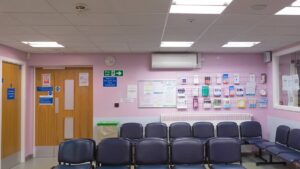The watchlist of likely losers from Victoria re-entering lockdown

Domestic travel companies, financial services, non-discretionary retailers, real estate investment trusts (REITs), and toll road operator Transurban (ASX:TCL) are on a watchlist of sectors hurt by Victoria’s new COVID-19 restrictions.
“This is a major blow for the travel and tourism sectors given many investors were hoping to see increasing interstate travel, a trans-Tasman bubble as early as July and certain international routes by the end of the year. This is now looking very optimistic,” Milford Asset Management portfolio manager William Curtayne said.
For financial services companies the threat is more if rolling lockdowns in specific geographic areas become the new normal, lenders will face rising non-performing loans from businesses and residents trapped in the restricted zones.
While discretionary retailers such as The Reject Shop (ASX:TRS) and Adairs (ASX:ADH) have done very well out of bored Australians stuck at home, supermarkets saw sales surges countered by an additional cost of doing business.
REITs with exposure to Melbourne could see rent collections fall again, such as ARENA REIT (ASX:ARF) whose portfolio of healthcare and early learning centres properties is weighted 25 per cent to Victoria and Centuria Office REIT (ASX:COF) which has a 17 per cent weighting to Melbourne.
And Transurban secures 35 per cent of its earnings from Melbourne toll roads. The company said in mid-June that traffic levels were recovering and business was good enough to pay out the half year 16c dividend, but second waves and further lockdowns on movements were a risk to continued recovery.
The Melbourne outbreak has so far not moved the ASX, which has responded more strongly over the last fortnight to US market dips and rises caused by rising cases in several large states.
This reflects the fact the outbreak is still relatively limited to certain sections of one city, but also because global stock markets are learning to live with the virus somewhat more easily, says Betashares ETF chief economist David Bassanese.
“Social distancing restrictions are especially problematic for retailing and the consumer discretionary sector more broadly. It is also negative for the commercial property sector given the pressure on retail and office rents,” he told Stockhead.
“By contrast, internet-related companies and even Telstra (ASX:TLS) are relatively more immune to the extent it means more economic activity takes place online.”
Drug companies running clinical trials could also be in trouble, if the hospital sector closes the doors again to non-COVID-19 related studies.
Companies have just begun to restart enrolments for clinical trials in the last three weeks after months of costly postponements, as hospitals restricted access to staff and equipment due to the need to handle the pandemic.
This is a risk for companies like Telix (ASX:TLX), which is recruiting in Melbourne as part of a multi-country trial for its renal cancer imaging device, or Imagion Biosystems (ASX:IBX) which is planning a multi-site trial in Australia later this year for its cancer imaging device.
Victoria hits reverse
Victoria moved 12 postcodes covering more than 340,000 people in northern Melbourne back to stage-two COVID-19 restrictions from Thursday night last week, after rapidly rising case numbers were discovered following failures in the city’s hotel quarantine system, and spread by post-Eid celebrations within a small number of families.
The criteria for the rapid change in status were suburbs with more than five cases and a case rate greater than 20 per 100,000.
The rest of the state has been moved back to partial stage-three restrictions which reinstated limits on how many people can meet in a home and outside, and how many can be seated in restaurants and in shops.
State governments are very reluctant to resume state-wide lockdowns, even if the virus spreads, widely given public sentiment and the heavy economic cost.
But many believe this may be the environment Australians need to get used to until a vaccine, or herd immunity, is achieved.
A Deloitte Access Economics report has put a Victorian economic recovery behind all other states in Australia, predicting a gross state product contraction of 1.6 per cent in the 2021 financial year. The Victoria is a quarter of the country’s economy so the new lockdowns will hurt growth nationwide.
The report predicts “prolonged misery” in Victoria as the state is forced to lockdown large sections of Melbourne, and warns that states which can’t beat the virus simply can’t open up.
The economic hit shouldn’t spread far
Provided the shutdowns are not extended too much further, the economic impact should be fairly limited, Bassanese says.
“People are still being allowed to attend work, though their ability to enjoy leisure activities outside of the home will be curtailed. This will be clearly devastating for the local shops, bars and restaurants in the affected areas,” he said.
“More broadly, this is also the risk that even re-emergence of the virus in Melbourne will dent consumer and business confidence nationally. It’s a reminder that we’re not over this crisis yet and infections and economic shutdowns could still happen at any time and in any place around the country.”
The Melbourne lockdown is already making people more cautious and pull back on activities such as eating out, Milford Asset Management’s Curtayne says.
“Some people will return to work-from-home, eat out less and generally reduce discretionary spending,” he said.
“Recent data from ANZ showed this is already happening, with spending on dining and takeaway in Victoria down 20 per cent last week year-on-year, compared with an 8 per cent increase in other states.
“Various businesses and retail chains will likely send employees back to work-from-home and close retail stores once again. We saw Apple do this in heavily impacted areas in the United States last week.”
Curtayne believes investors will gain confidence if the Melbourne breakout can be contained over the next few weeks, that future breakouts can also be contained, and may become less concerned with COVID-19.
But in a pointed nod to the government’s rhetoric around removing the Jobkeeper wage subsidy and lowering the unemployment benefit, he said the negative outcome of uncontrolled virus spread is likely to have a material economic impact, if it’s not combatted aggressively with more monetary and fiscal stimulus.
Related Topics
UNLOCK INSIGHTS
Discover the untold stories of emerging ASX stocks.
Daily news and expert analysis, it's free to subscribe.
By proceeding, you confirm you understand that we handle personal information in accordance with our Privacy Policy.








